Life
Sign up for our newsletter
We summarize the week's scientific breakthroughs every Thursday.
-
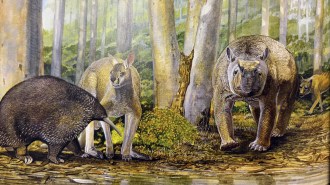 Humans
HumansAn ancient bone recasts how Indigenous Australians treated megafauna
A new look at cuts on a giant kangaroo bone reveal First Peoples as fossil collectors, not hunters who helped drive species extinct, some scientists argue.
-
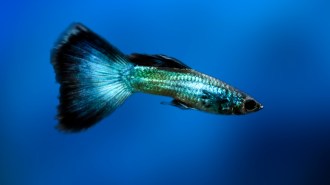 Animals
AnimalsGuppies fall for a classic optical illusion. Doves, usually, do too
Comparing animals’ susceptibility to optical illusions can show how perception evolved.
By Sujata Gupta -
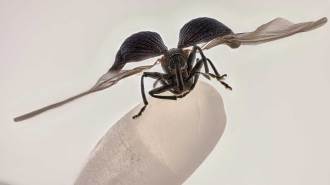 Life
LifeA rice weevil frozen in flight won the 2025 Nikon Small World photo contest
From fluorescent ferns to sprawling neurons, this year’s winning photos reveal the structures and artistry of life seen through a microscope.
By Carly Kay -
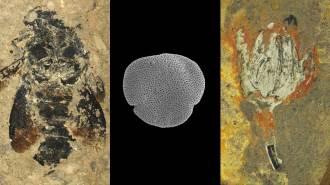 Paleontology
PaleontologyThese ancient bumblebees were found with their pollen source
Insects have long pollinated plants, but evidence of ancient pairing is rare. Fossils now show bees and linden trees goes back 24 million years.
-
 Life
LifeWe all have a (very tiny) glow of light, no movie magic needed
Normal cellular processes in living things — from germinating plants to our own cells — create biophotons, though escaping light isn’t visible to us.
-
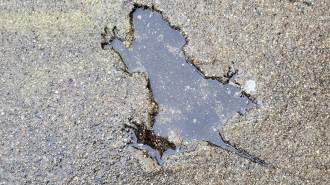 Animals
AnimalsThe viral Chicago ‘Rat Hole’ almost certainly wasn’t made by a rat
Researchers used methods from paleontology to analyze the quirky local landmark, created when a rodent of a certain size fell into wet concrete.
By Amanda Heidt -
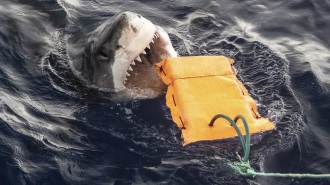 Materials Science
Materials ScienceNew wetsuit designs offer a layer of protection against shark bites
By weaving Kevlar or polyethylene nanofibers into standard neoprene in wetsuits, researchers found ways to limit injury during rare encounters with sharks.
By Carly Kay -
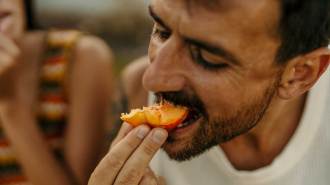 Neuroscience
NeuroscienceBrain scans reveal where taste and smell become flavor
The findings show the insula fuses taste and certain smells into the sensation of flavor.
-
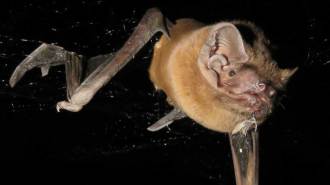 Animals
AnimalsMic’d bats reveal midnight songbird attacks
Sensor data reveal greater noctule bats chasing, catching and chewing on birds during high-altitude, nighttime hunts.
-
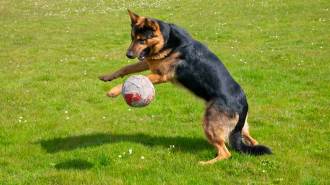 Animals
AnimalsToy-obsessed dogs give clues to addictive behaviors
Some dogs love playing with toys so intensely they can’t stop—offering scientists a window into behavioral addictions.
- Animals
What the longest woolly rhino horn tells us about the beasts’ biology
A nearly 20,000-year-old woolly rhino horn reveals the extinct herbivores lived as long as modern-day rhinos, despite harsher Ice Age conditions.
By Jake Buehler -
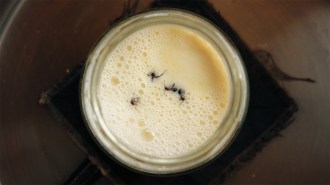 Microbes
MicrobesTo make a tasty yogurt, just add ants (and their microbes)
Spiking milk with live ants makes tangy traditional yogurt. Researchers have identified the ants' microbial pals and enzymes that help the process.